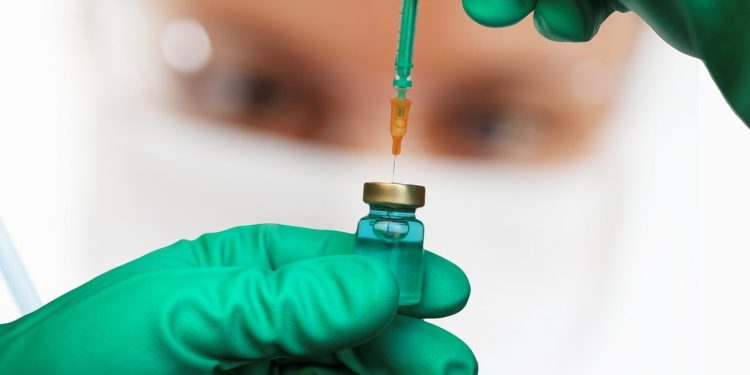Vaccinations are a vital component of pet healthcare, protecting animals from a variety of serious and potentially life-threatening diseases. Whether you have a dog, cat, or another type of pet, understanding the purpose, schedule, and benefits of vaccinations can help you make informed decisions about their health. This guide provides a detailed overview of pet vaccinations, their importance, and how they contribute to your pet’s well-being.
The Importance of Vaccinations
Disease Prevention
Vaccinations help protect pets from infectious diseases that can cause severe illness or death. Common diseases such as rabies, distemper, and parvovirus in dogs, or feline leukemia virus (FeLV) in cats, are preventable through timely vaccinations.
Community Health
Vaccinating your pet not only protects them but also contributes to public health by preventing the spread of zoonotic diseases, such as rabies, which can be transmitted to humans.
Cost-Effective Care
Preventing disease through vaccination is often far less expensive than treating an illness once it occurs. Vaccines save money and spare your pet unnecessary suffering.
How Vaccines Work
Vaccines stimulate the immune system to recognize and fight specific pathogens. They introduce harmless components of a disease-causing agent, such as proteins or inactivated viruses, prompting the body to produce antibodies. If your pet is later exposed to the actual disease, their immune system can respond more effectively.
Types of Vaccines
Core Vaccines
Core vaccines are essential for all pets, regardless of their lifestyle. These vaccines protect against diseases that are widespread and pose significant health risks. Examples include:
- Dogs: Rabies, distemper, parvovirus, adenovirus.
- Cats: Rabies, feline viral rhinotracheitis, calicivirus, panleukopenia.
Non-Core Vaccines
Non-core vaccines are recommended based on a pet’s lifestyle, environment, and risk factors. Examples include:
- Dogs: Bordetella (kennel cough), Lyme disease, leptospirosis.
- Cats: Feline leukemia virus (FeLV), chlamydia, Bordetella.
Vaccination Schedules
Puppies and Kittens
Young animals require a series of vaccinations to build immunity, starting at 6–8 weeks of age and continuing every 3–4 weeks until they are about 16 weeks old. Key vaccinations during this period include:
- Dogs: Distemper, parvovirus, adenovirus, rabies.
- Cats: Feline distemper (panleukopenia), rhinotracheitis, calicivirus, rabies.
Adult Pets
After the initial series, adult pets require booster vaccinations at regular intervals. Core vaccines are typically given every 1–3 years, depending on the vaccine and local regulations.
Senior Pets
Vaccination schedules for senior pets may be adjusted based on their health status and lifestyle. Your veterinarian will assess the risks and benefits to determine the best approach.
Factors Influencing Vaccination Decisions
Lifestyle and Environment
- Indoor pets may have lower exposure to certain diseases but still require core vaccines.
- Pets that visit parks, boarding facilities, or interact with other animals may need additional non-core vaccines.
Travel Requirements
- Certain vaccinations may be required for pets traveling internationally or to specific regions.
Health and Age
- Pets with compromised immune systems or chronic illnesses may require tailored vaccination plans.
Common Questions About Vaccinations
Are Vaccines Safe?
Vaccines are rigorously tested for safety and efficacy. Most pets tolerate vaccinations well, with mild side effects such as soreness or lethargy being the most common. Severe reactions are rare.
Can Vaccines Cause Illness?
Vaccines do not cause the diseases they protect against. However, live vaccines may not be suitable for pets with weakened immune systems.
Why Do Some Vaccines Require Boosters?
Immunity from vaccines can wane over time. Boosters ensure continued protection by reactivating the immune response.
What to Expect During a Vaccination Appointment
Pre-Vaccination Assessment
Your veterinarian will perform a physical exam to ensure your pet is healthy enough to receive vaccines. They may ask about your pet’s lifestyle and medical history to determine the appropriate vaccinations.
Administration
Vaccines are usually given via injection, although some, like Bordetella, may be administered intranasally or orally.
Post-Vaccination Care
- Monitor your pet for any adverse reactions, such as swelling, vomiting, or difficulty breathing.
- Contact your veterinarian if you notice unusual symptoms.
Managing Vaccination Records
Keeping Track
Maintain a record of your pet’s vaccinations, including dates and types of vaccines received. Many veterinarians provide vaccination certificates for this purpose.
Digital Records
Consider using apps or online platforms to store and manage your pet’s health records, making it easy to access them when needed.
Special Considerations
Vaccinating Pregnant Pets
Vaccination during pregnancy is generally avoided unless absolutely necessary, as some vaccines can affect fetal development.
Vaccination for Immunocompromised Pets
Your veterinarian may recommend inactivated (killed) vaccines over live vaccines for pets with weakened immune systems.
Debunking Vaccination Myths
Myth: Indoor Pets Don’t Need Vaccines
Even indoor pets can be exposed to diseases through airborne particles, contaminated surfaces, or interactions with other animals.
Myth: Vaccines Are Unnecessary After Initial Doses
Booster vaccines are crucial for maintaining immunity and ensuring long-term protection.
Myth: Natural Immunity Is Better Than Vaccination
While natural exposure to diseases can provide immunity, it also carries significant risks. Vaccination is a safer and more controlled method of building immunity.
The Role of Herd Immunity
Vaccinating a significant portion of the pet population helps reduce the spread of contagious diseases, protecting pets who cannot be vaccinated due to medical reasons.
Conclusion
Vaccinations are a critical part of pet healthcare, providing protection against dangerous diseases and promoting overall well-being. By staying informed and working closely with your veterinarian, you can ensure your pet remains healthy and protected throughout their life. Prioritize regular checkups and follow recommended vaccination schedules to give your pet the best chance at a long, happy life.












